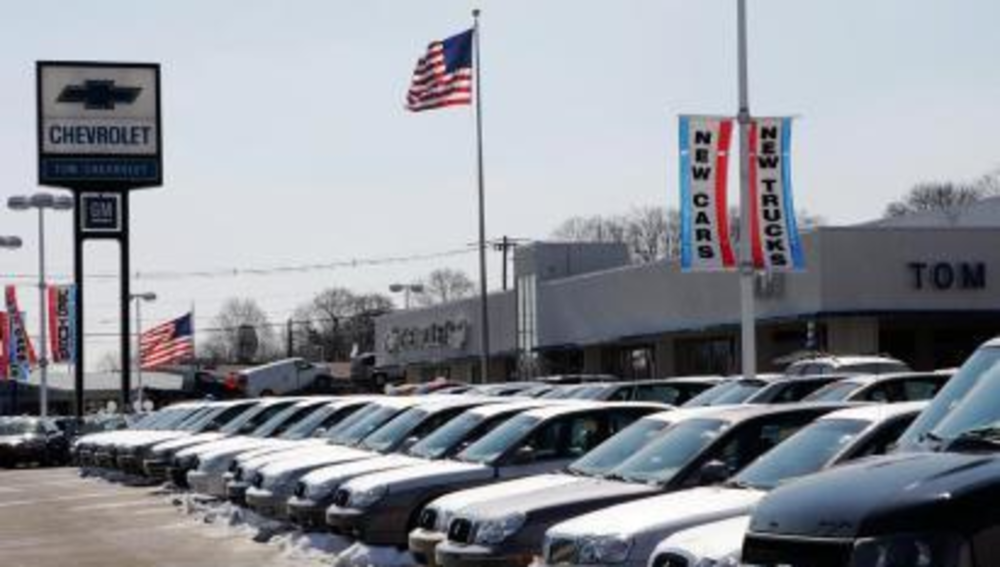The dramatic recent events in the US auto industry are being felt throughout the marketing world and, while some agencies are feeling the heat, the news isn’t all bad, with some direct marketers reporting business growth thanks to the automotive market.
Last week, the “Big three” US automakers appeared before Congress asking for $34 billion in financial assistance to help them stay afloat as they face plummeting vehicle sales. Not surprisingly, the drop in sales has been matched by a drop in marketing spend.
If the bailout, which is not a done deal yet by any means, does not occur, no one is quite sure what is going to happen to the US auto industry.
One possible scenario — that it will be dramatically reduced or even fail completely — would have widespread repercussions throughout the marketing world. Several agencies and marketing services providers are built almost exclusively around the auto industry while many other firms are highly dependent, if not exclusively so, on the vertical.
The reverberations are already being felt. Several marketing agencies with close ties to the auto industry have had recent cutbacks. Omnicom agency BBDO Detroit, which handles Chrysler, recently cut 145 jobs to account for loss of client activity; Mullen Agency, which has an office in Detroit, laid off 5% of its work force; and Campbell-Ewald, in Warren, MI, also let some people go.
But the story from direct marketing firms is slightly different.
“Year-to-date, our gross sales are up 13.9% because there is more business from automotive dealers,” said Denis Sovik, partner at The Ready Group, which creates variable data printing direct mail and personalized URL programs for the automotive industry.
“We’re continuing to grow our automotive business,” echoed Tim Longnecker, industry executive for Acxiom’s automotive business.
Automakers also are shifting their efforts to include more digital creative, which is often more cost-efficient than traditional TV advertising and has increased measurability.
Chrysler is currently running a campaign for the new Dodge Ram, which features Webisodes of a reality show competition featuring tough guys driving the new truck in extreme races.
“Throughout this year, we’ve been looking at shifting our advertising efforts to include online, because digital is a little bit more direct, and we can measure it more,” said Carrie McElwee, a Chrysler spokesperson.
For the first half of this year, Chrysler spent $379 million in US measured media, compared to $544 million for the same period last year, according to TNS Media Intelligence.
Ford, whose measured media spend was $2.5 billion in 2007, according to TNS, slashed its marketing budget across all brands, down to $100 million from $300 million during the second quarter of 2008.
As part of the restructuring program it is offering, GM says it will cut advertising and promotional costs from $3.2 billion in 2008 to $2.6 billion in 2012, and will focus substantially all of its marketing resources going forward on four brands — Chevrolet, Cadillac, Buick and GMC— leaving the future unclear for Hummer, Saab and Saturn.
“Car manufacturers are looking at how they can get more efficiency out of each marketing dollar they spend,” said Longnecker.
As a result, he doesn’t think the direct marketing industry will be as negatively impacted by the likely downsizing of the automotive industry as other areas will be. “There are a lot of efficiencies to be gained from targeted marketing,” he said.
Longnecker said he has seen automakers shift their marketing budgets in recent years, taking money away from national advertising and putting more money into targeted advertising, whether its direct mail or online advertising. “We expect that trend to continue,” he said.
The focus will be on trigger-based marketing that quickly delivers a message to consumers who indicate by their online activities that they are in the market for a car.
“There is a lot of opportunity for growth in this area,” Longnecker said.
In consumer-directed communications from automotive dealers — some of which are funded by co-op advertising dollars from car manufacturers, while some are not — Sovik has noticed a growing emphasis on messaging around customer loyalty and service.
“Where car sales are down, consumers are keeping cars for longer periods of time and servicing their car becomes more important,” Sovik said.
Automotive dealers are trying to capitalize on this with messaging highlighting their ability to service vehicles, thereby trying to keep them in the loop for when they are ready to make a purchase.
On the sales front, automotive dealers that do have money available to finance cars for consumers are finding success by focusing on this message, Sovik said.
In November, General Motors’ total vehicle sales dropped 41%, Chrysler’s were down 47.1% and Ford’s were down 30.5%, according to Motor Intelligence. Year-to-date, the declines are 21.9%, 27.7% and 19.5%, respectively. At press time, the status of the proposed automotive bailout was still uncertain.






